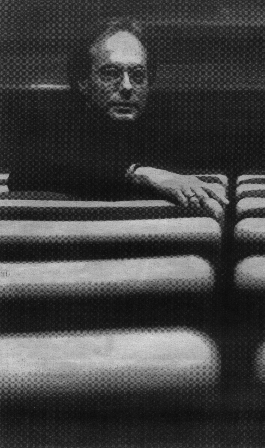

Translation from the Spanish by Roberto Aparici
and Douglas Morgenstern.
Ben Howell Davis of the Center for
Educational Computing Initiatives at MIT

El Mundo: Are we in a position to have
global education with new technologies?
Davis: Technically it's possible. The risk of
colonization exists
everywhere because the technology permits international interconnection. The
same thing has happened with television and radio. Each time there is a greater
homogenization of information technology it creates new information but also
the danger of cultural colonization.
El Mundo: What is the consequence of the
concentration of multimedia in a few corporations?
Davis: When this situation occurs it is
necessary to speak of propaganda. The concentration of mass media can create
the possibility of manipulation. People are only choosing different media from
a limited number of sources. In the case of multimedia the protection of ideas
is more difficult (copyright) than in other media and this might be a danger in
developing democracies.
El Mundo: Individual or governmental
control?
Davis: The problem is to determine how much
the government controls and how much corporations control. Currently,
corporations are in control of the technology. I think the best thing that
could happen would be to teach people about the underlying structure of
multimedia.
El Mundo: What kind of research are you
doing at the center at MIT?
Davis: Overall we work developing multimedia
and distribution technology on a global scale. We produce material for language
learning, science, art
- we develop projects for museums
and libraries and we are working on a program for teaching Media Literacy.
El Mundo: What are the possibilities for
opening education?
Davis: Multimedia is the mix of video, audio,
graphics, and text - but this does not mean to just use these media together.
Rather, it means the learner is in an active attitude - navigating through the
information and choosing what is necessary at the moment. We are in education
not only for the university level but for all the other levels. In general, we
try to take an individual approach to learning.
El Mundo: Will schools disappear when the
student can study at home?
Davis: No, the school will be more important
in the future because it is the unique place that is responsible for the
education of the young and the young are in school together to create new
ideas. Students are more in contact with new technology than we were at their
age - they can use it in more intelligent ways. Multimedia extends the school
to the home but does not replace the school. Besides this the technology
permits network distribution of information on a global scale and opens a field
of communications that we could not imagine before.
El Mundo: In which phase of development is
this technology?
Davis: We are in the period of the silent movie - we are
just at the beginning. The difference between that period and this is that we
are researching the technology with our "eyes open".
Its necessary to carefully analyze the products produced by large corporations
in order to limit the segmenting of our vision of reality. It is a period of
study and analysis of new
technologies.
El Mundo: Where is the technology going in
the future?
Davis: No one is more interested in the
future than the researcher of today. It is a passion but it is also dangerous
because we really can't know what will actually happen in the future.
El Mundo: Will multimedia effect
employment in education as well as in other areas?
Davis: Totally. It will create new research positions but other jobs will be lost. Its necessary for this to happen. It will be a long time before this occurs. Corporations have not yet determined what tools will be utilized.